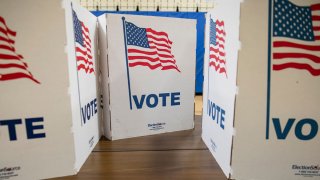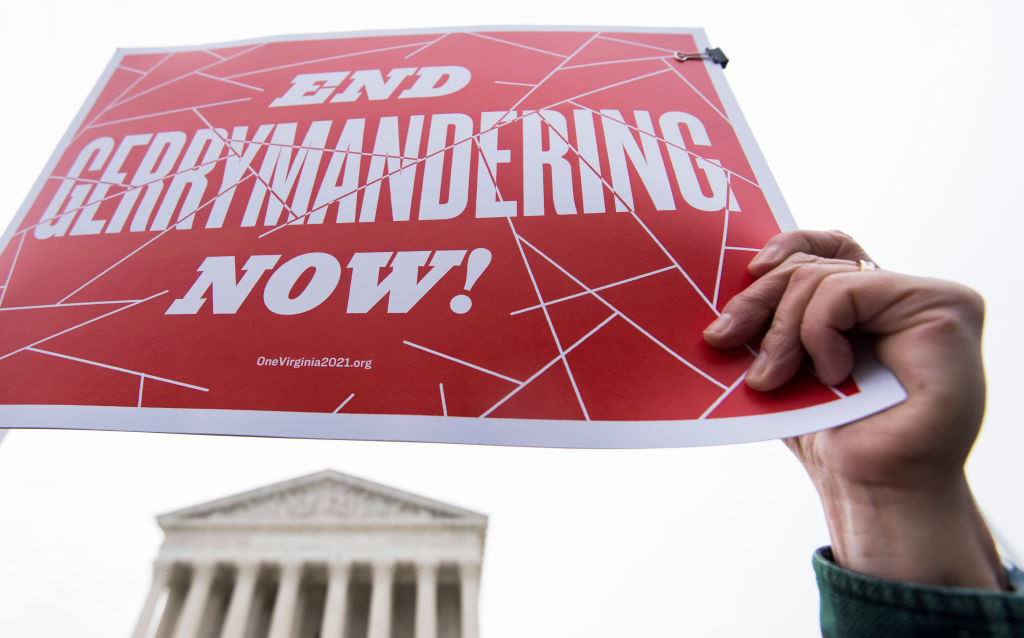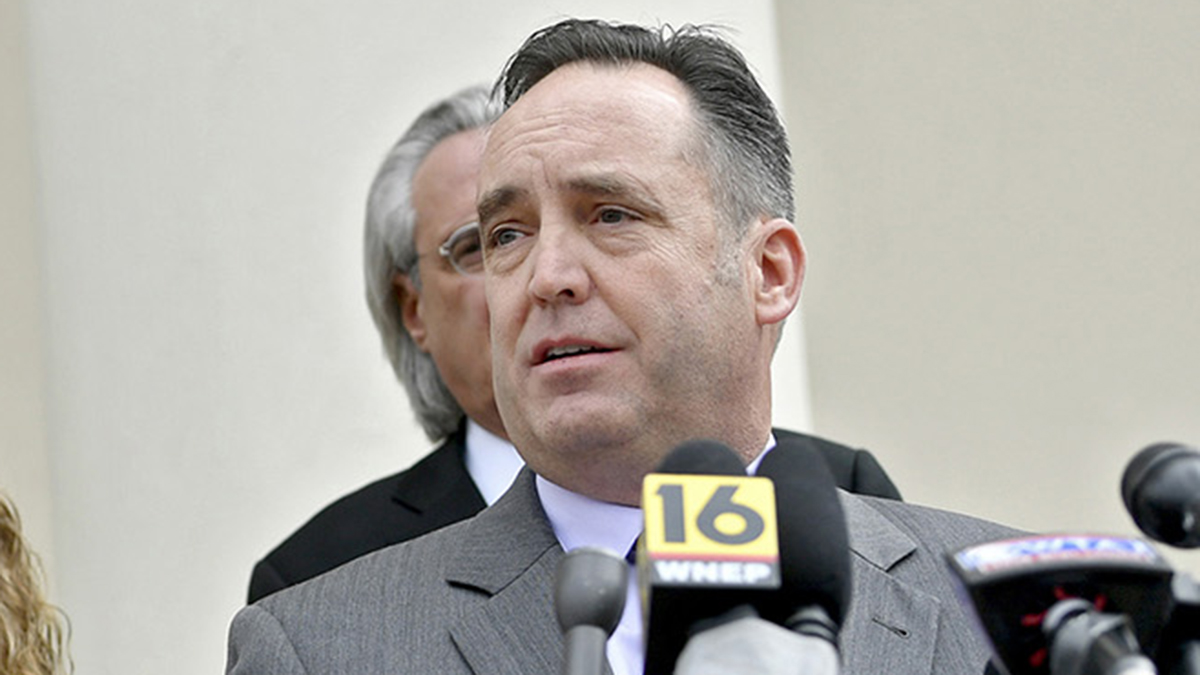
While many Americans will be mailing in their ballots this November the country still faces a shortage in poll workers.
In a press release on National Poll Worker Recruitment Day, Old Navy announced compensation for its employees who volunteer to work the polls for the presidential election.
It said it was “encouraging employees to apply to serve their communities and giving them the means to do so."
Old Navy is working in partnership with the Civic Alliance and Power the Polls to reach a goal: 250,000 new poll workers.
“It’s really cool to see Old Navy jumping in and taking initiative like that,” said Scott Duncombe, co-director of Power the Polls, a nonprofit organization focused on recruiting poll workers and keeping polling places open, staffed and running smoothly on Nov. 3.
The clothing brand is the first to compensate its workers who sign up, while other companies like Delta Air Lines are encouraging their employees who are on leave to volunteer as poll workers.
Decision 2020
The latest news on the 2020 presidential election
Most states pay poll workers for the long hours worked. And in some states poll workers can be as young as 16. According to the National Conference of State Legislatures, compensation varies from location and hours, with some states paying just under $100 while others are offering hazard pay on top of compensation.
A poll worker's job begins before Election Day as they have to attend a training session. Some of the responsibilities include checking voter ID, distributing ballots and make sure every ballot is accounted for.
Several states and cities face a poll worker shortage due to the risk of getting COVID-19. Between efforts at keeping older folks home and new technology being introduced to polling places this cycle, there is a great demand for younger poll workers.
David Koo, 29, a landscape architect in Berkeley was motivated to sign up to work at his local polling place after seeing how first responders and medical professionals dedicated their time to handle the pandemic.
“I could work from home. I don’t have kids to home-school and honestly, my life wasn’t so disrupted,” Koo said. “With so much attention on politics and the election, I felt in a small way I could help ease the burden of the older poll workers and engage my civic duty.”
Koo said he expected a shortage because many of his neighbors who are politically active are older.
During the primary election season, some polling places across the country closed due to not enough volunteers. Voters experienced long lines and troubles in operating the voting machines in Atlanta, for example.
On Georgia Public Radio, Dave Williams, director of the Metro Atlanta Chamber of Commerce, said last month that his organization was looking to recruit “younger, tech-savvy poll workers.”
“We've heard from Delta Air Lines and Delta has told us that they will push this information out and encourage their employees to go to and sign up to be able to be a poll worker,” William said.
Power the Polls is working to fill the need with younger people as they reflect the population, understand technology and are less likely to face the worst health outcomes from COVID-19.
“Younger folks just demographically are a little more diverse, a little more representative of their community,” Duncombe said to NBC. “A first-time voter person of color comes in and sees someone with a shared experience, it makes the polling place a bit more approachable.”
The end goal for Power the Polls is to have 250,000 committed poll workers sign up. Along with the sign-ups, the organization is working with elected officials to address areas around the country with a greater need for workers.
After the NBA players demanded visible action to address racism in the country, following the shooting of Jacob Blake at the hands of police officers, the league's governors agreed to work with local elected officials to convert the empty stadiums to polling places. The size of the stadiums allows voters to cast their ballot and waiting line while adhering to social distancing guidelines.
According to Pew Research Center, one in 10 eligible voters will be from Gen-Z, between the ages of 18 to 23. Among non-white ethnic groups, Hispanics will be the majority with over 13% followed by Black Americans with 12.5%.
The country has struggled with voter turnout in past elections and the pandemic is causing more participation obstacles. According to Pew, 56% of registered voters participated in the 2016 presidential election.
In past elections, voters were most likely to be greeted by someone in their sixties taking their ballot and handing out a sticker saying, “I voted.”
In the 2018 general election, around six in 10 U.S. poll workers (58%) were ages 61 and older, including roughly a quarter (27%) who were over 70, according to a Pew Research Center analysis of government data from that year’s Election Administration and Voting Survey (EAVS), a biennial study of states’ administration of federal elections.
That may not be the case this year.
Brahm Schultz and his father are seasoned poll workers, Schultz is the judge of election for his polling place in Chestnut Hill, a neighborhood in Philadelphia. His father has operated voting machines in the past, but this election may be different. Schultz’s father is in his early 70s and spending an entire day at a polling place during the pandemic is less appealing despite the compensation.
“He has indicated to me he doesn’t want to do it; I don’t think he wants to get near people,” Schultz said. “I don’t know if I want to either if not for my own self. I don’t want to get my parents sick.”
According to Duncombe and the Power the Polls website, in working closely with elected officials to ensure poll workers receive appropriate PPE.
"You should be taken care of, there should be enough protective equipment for you to wear working the polls and to be able to properly sanitize things," Duncombe said.
There has been a great push for voter participation. In August CNBC, reported that hundreds of companies including Patagonia, Lyft and Walmart giving workers paid time off to vote in the 2020 election. With polling places open during business hours, many registered voters do not vote because it conflicts with their work schedule.




